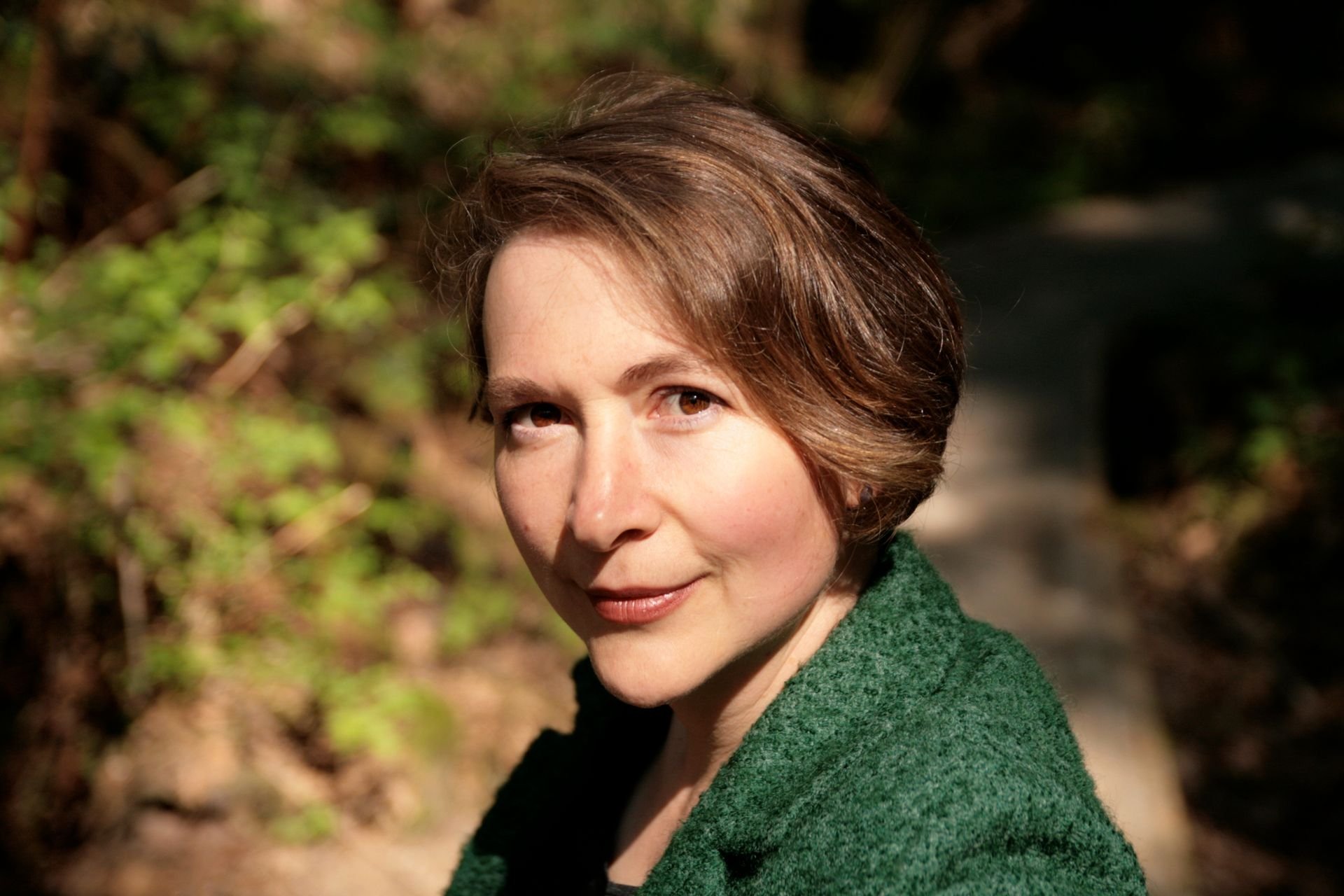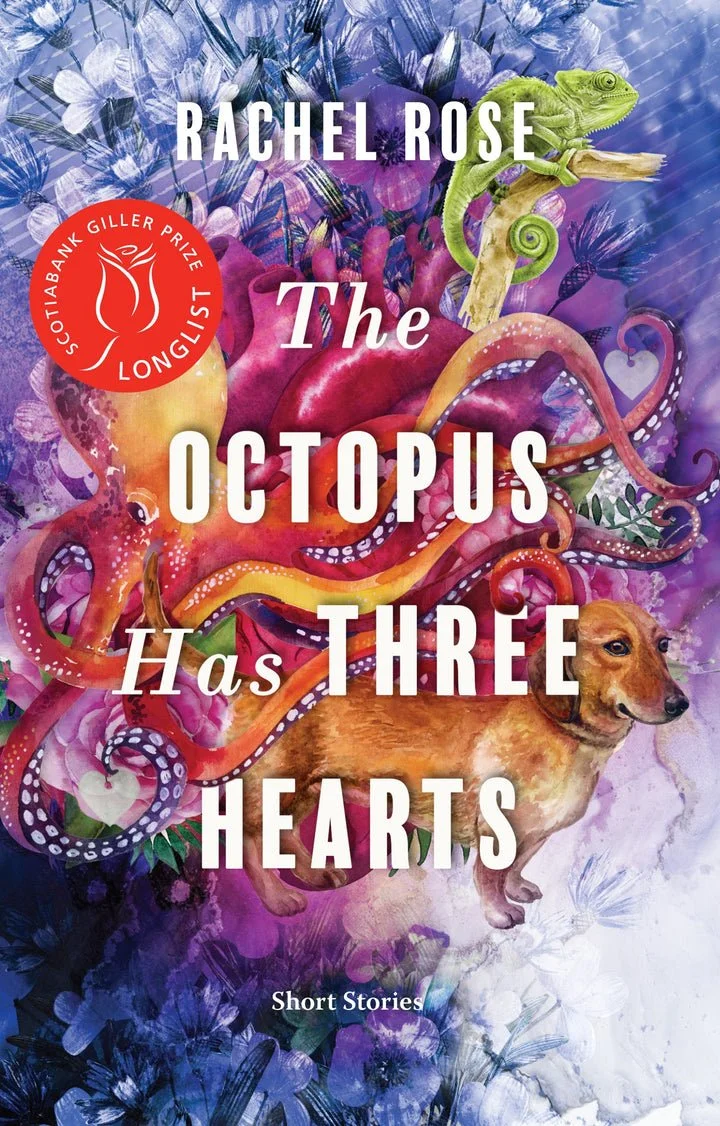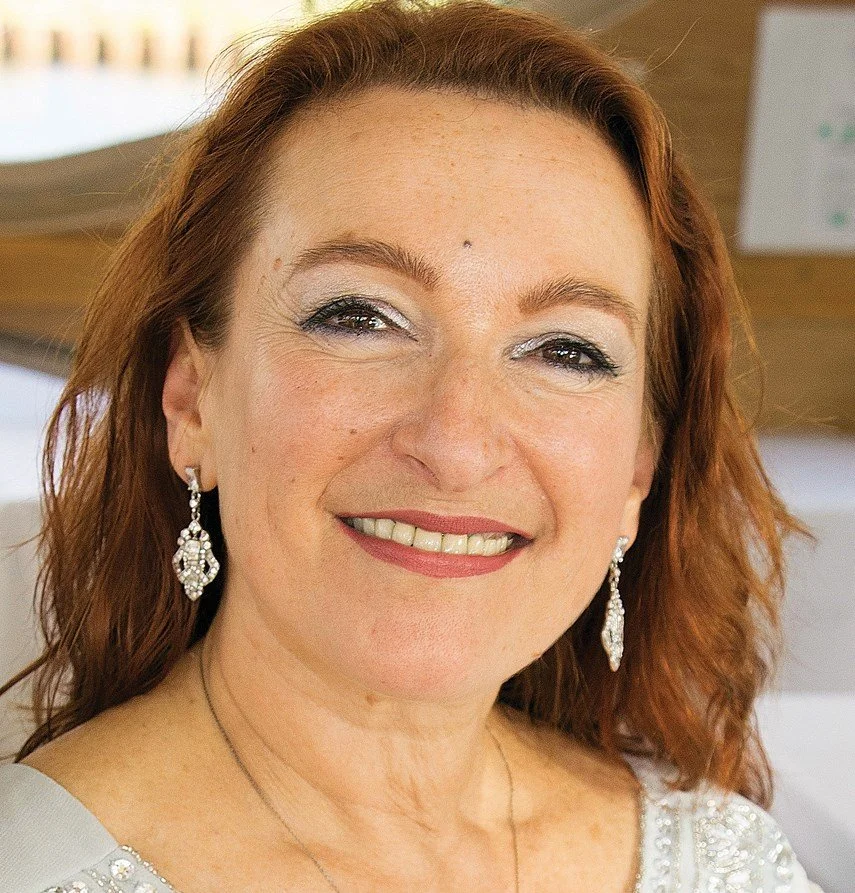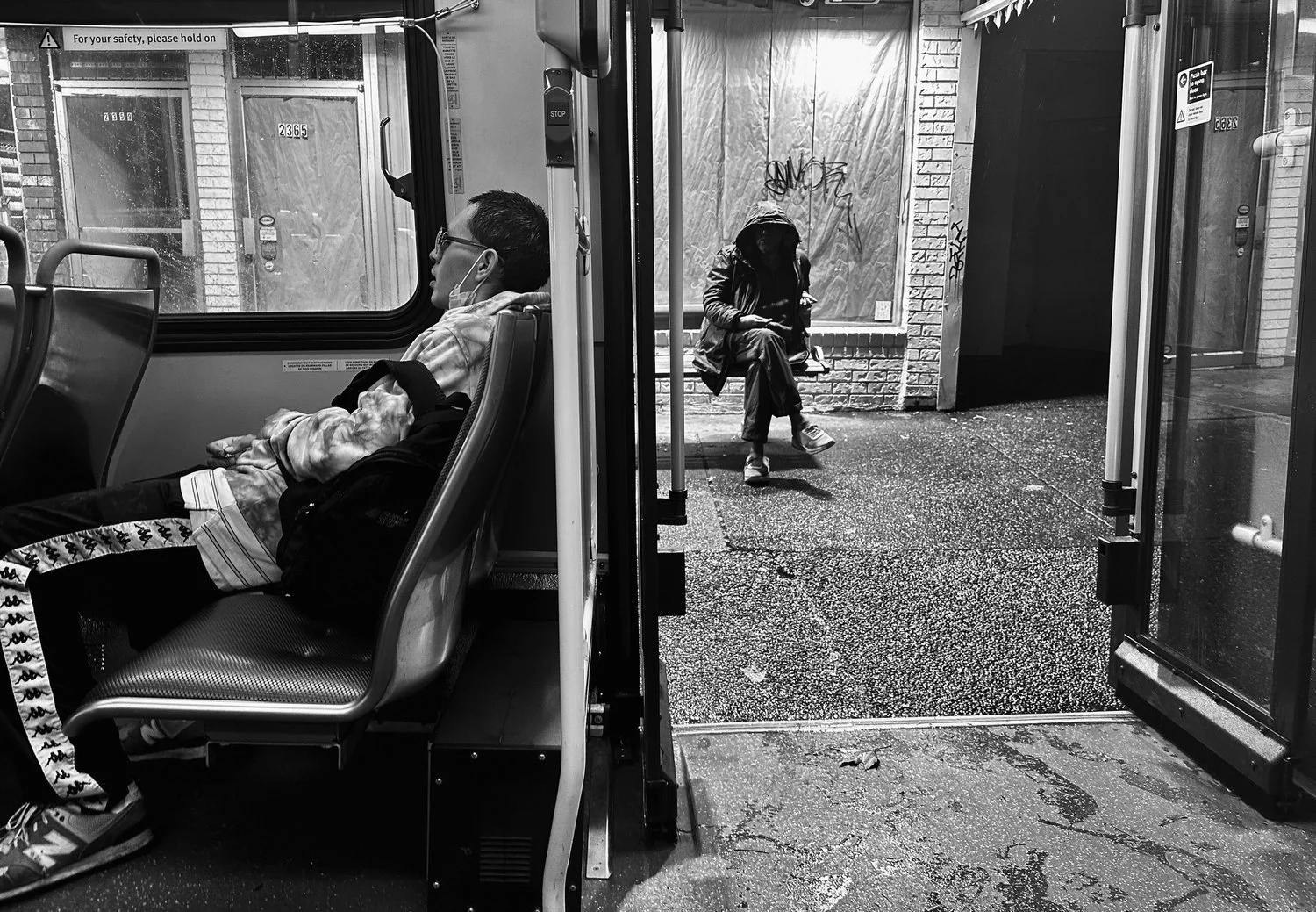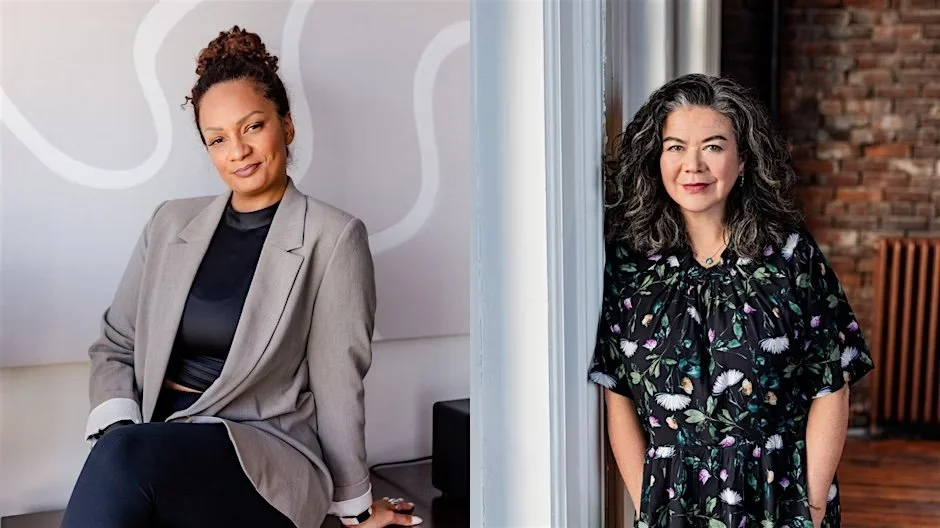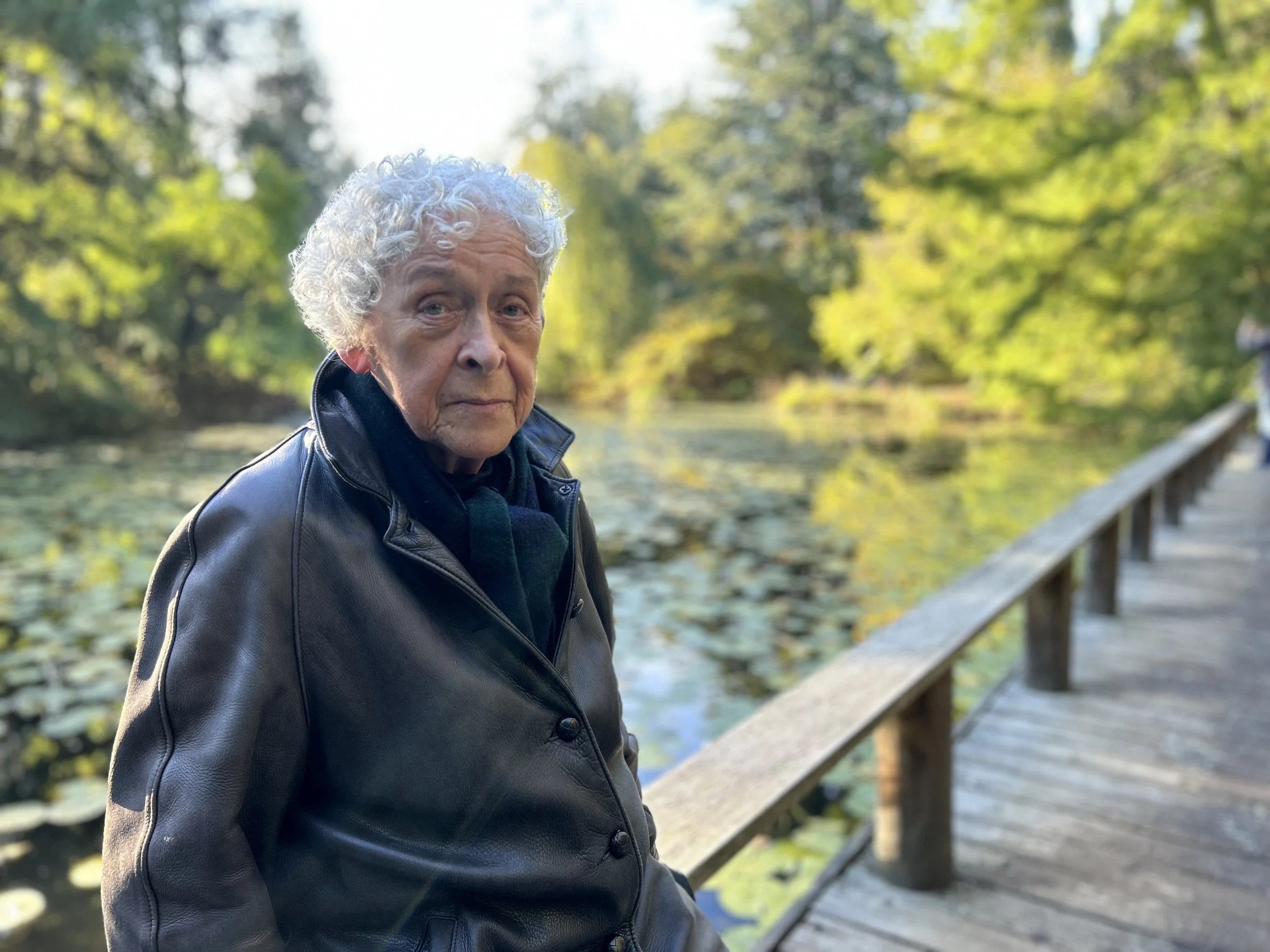JCC Jewish Book Festival: From fictional worlds of beasts to frank takes on antisemitism, the 2022 event covers vast ground
Vancouver author Rachel Rose, author of The Octopus Has Three Hearts, is featured in the annual literary event’s Short Stories Extravaganza
Rachel Rose is the author of The Octopus Has Three Hearts.
The 37th Annual Cherie Smith JCC Jewish Book Festival takes place from February 6 to 10 via livestream.
IN THE OCTOPUS Has Three Hearts, Vancouver-based author Rachel Rose inhabits short stories with people who do utterly terrible things and who have chosen non-human creatures like bats, rats, goats, pigs, parrots, and chameleons as their family. Her deeply flawed characters have little in common with each other except for their isolation, living on society’s fringes in circumstances she describes in vivid, graphic, ugly detail. Her writing makes us wonder: just who are the beasts?
Longlisted for the 2021 Scotiabank Giller Award for Fiction, The Octopus Has Three Hearts is Rose’s short-fiction debut, written pre-pandemic during a year spent in France and Italy with her wife and three children. While they were in Toulouse, “gilets jaunes” riots were raging, the anti-government movement giving rise to fires in the streets and teargas coming into their apartment.
“It was just the beginning of what has become much more global unrest, and even though my stories are all set in North America, I think some of that rage that was in the streets entered my stories,” Rose tells Stir by phone. “I’m drawn to conflict, absolutely. I think that’s where a lot of the story lies. I think at their heart, my stories are arguments. I like to grapple with an issue and I like to invite my reader to do the same.
“Writing allows me the chance to discover and articulate what I believe, and then I hope it allows the reader to do that too by showing the contradictions in how we think and how we treat people,” says Rose, Poet Laureate Emerita of Vancouver. “I think that’s part of why the conflict comes up: I really want to challenge people not to go toward empathy, which might invite them to take one side; I want them to laugh, and I want to make them think, and I want them maybe to feel compassion, which is for both sides, which is for all sides, even when people are reprehensible. Part of what I hope that my readers are capable of doing is to see both sides or multiple sides of an issue and understand that there can be these contradictions that are not easy to resolve. I want to have them resist simple solutions, have them resist taking a side. My ideal reader can handle that kind of complexity and is just really curious more than judgemental about human nature.”
Rose is among the distinguished featured authors at the upcoming 37th Annual Cherie Smith JCC Jewish Book Festival. She’ll join Montreal’s Ami Sands Brodoff, author of The Sleep of Apples, for the Tea with Authors—Short Stories Extravaganza on February 8.
Co-director of Vancouver Manuscript Intensive, a mentorship program, Rose is also the author of Dog Lover Unit: Lessons in Courage from the World’s K9 Cops and has written four collections of poetry, including Marry & Burn. The Octopus Has Three Hearts marks a full-circle moment for the writer, with her return to fiction: more than two decades ago, Rose won the Writers’ Trust of Canada’s Bronwen Wallace Award for Emerging Writers in the genre. “Then I didn’t write any fiction for years because I was afraid,” Rose says. “I was afraid it wouldn’t be good enough. And I let that stop me. And then, you know, you hit the middle of your life, and you just realize it’s now or never. And I had to kind of give myself permission to take that risk and let myself do what I most wanted to do but was not doing. Somehow while we were travelling, while we were in another country, I just felt free to do it regardless of the outcome. I felt free to do it without thinking about ‘What if it’s rejected? What if it’s no good?’ I just thought, just do it out of love. Somehow I just had to get old enough and brave enough.”
Love of literature, reading, and writing is at the heart of the JCC Jewish Book Festival, which strives to represent a breadth of viewpoints, cultures, and experiences and themes that are universal. In festival director Dana Camil Hewitt’s view, there’s nothing as potent as a good book when it comes to sparking discussion, particularly of the difficult but necessary sort.
Consider the events that bookend the festival: on February 6, the fest opens with Investigating the New Antisemitism, featuring Dara Horn, author of People Love Dead Jews: Reports from a Haunted Present, and British comedian David Baddiel, author of Jews Don’t Count, in conversation with Marsha Lederman. To bring the event to a close, Daniel Sokatch, author of Can We Talk About Israel? A Guide for the Curious, Confused, and Conflicted, appears on February 10.
“We do like to create these uncomfortable conversations,” Hewitt says in a phone interview. “For the opening, we felt very strongly about, how everywhere in the world we are all experiencing a rise in hate and antisemitism, and how we needed to address that. The closing is confronting the eternally uncomfortable Israeli-Palestinian conflict, in this case talking to an author who is extremely well-versed in every detail of the Israel-Palestine conflict in all its incredible complexity. Hopefully it will create more understanding from on the ground, what’s going there.”
Jewish Book Festival director Dana Camil Hewitt.
While this year’s fest explores a vast range of subjects across multiple genres—and happens to have several titles related to the art world—the ever-present shadow of the Holocaust has emerged as a strong theme. Leah Garrett takes a historical perspective in X-Troop: The Secret Jewish Commandos of World War II for instance. (Winston Churchill’s idea of the new commando unit made up of Jewish refugees who had escaped to Britain was the inspiration for Quentin Tarantino’s Inglourious Basterds.)
Isa Milman and Menachem Kaiser each share a historical quest. Milman is the author of Afterlight: In Search of Poetry, History and Home, which documents her search for her aunt’s long lost poems, published in Poland in the early 1930s, leading to an investigation of her family’s life before, during, and after the Holocaust. Kaiser wrote Plunder: A Memoir of Family Property and Nazi Treasure, about his journey to reclaim his family’s apartment building in Poland and the entanglement with Nazi treasure hunters that followed.
Mythcial quests form the common ground among Gary Barwin’s Nothing the Same, Everything Haunted: The Ballad of Motl the Cowboy (about a middle-aged Jewish man who fantasizes about being a cowboy and travels across Europe after the 1941 Nazi invasion of Lithuania) and Jai Chakrabarti’s A Play for the End of the World , a debut novel set in early 1970s New York and rural India that folds in harrowing accounts of the horrors of World War II.
Then there is an appearance by Heather Morris, whose Three Sisters: A Novel is the final installment in the best-selling trilogy that includes The Tattooist of Auschwitz and Cilka’s Journey. Inspired by a true story, the novel follows three Slovakian siblings who manage to escape Auschwitz and travel to their new home in Israel, where they encounter different obstacles to freedom.
“The written word forces us to confront issues in a manner that no other medium can, in my opinion,” Hewitt says, “to look at them unflinchingly and to drive the point home.”
For more information, see the Jewish Book Festival.


